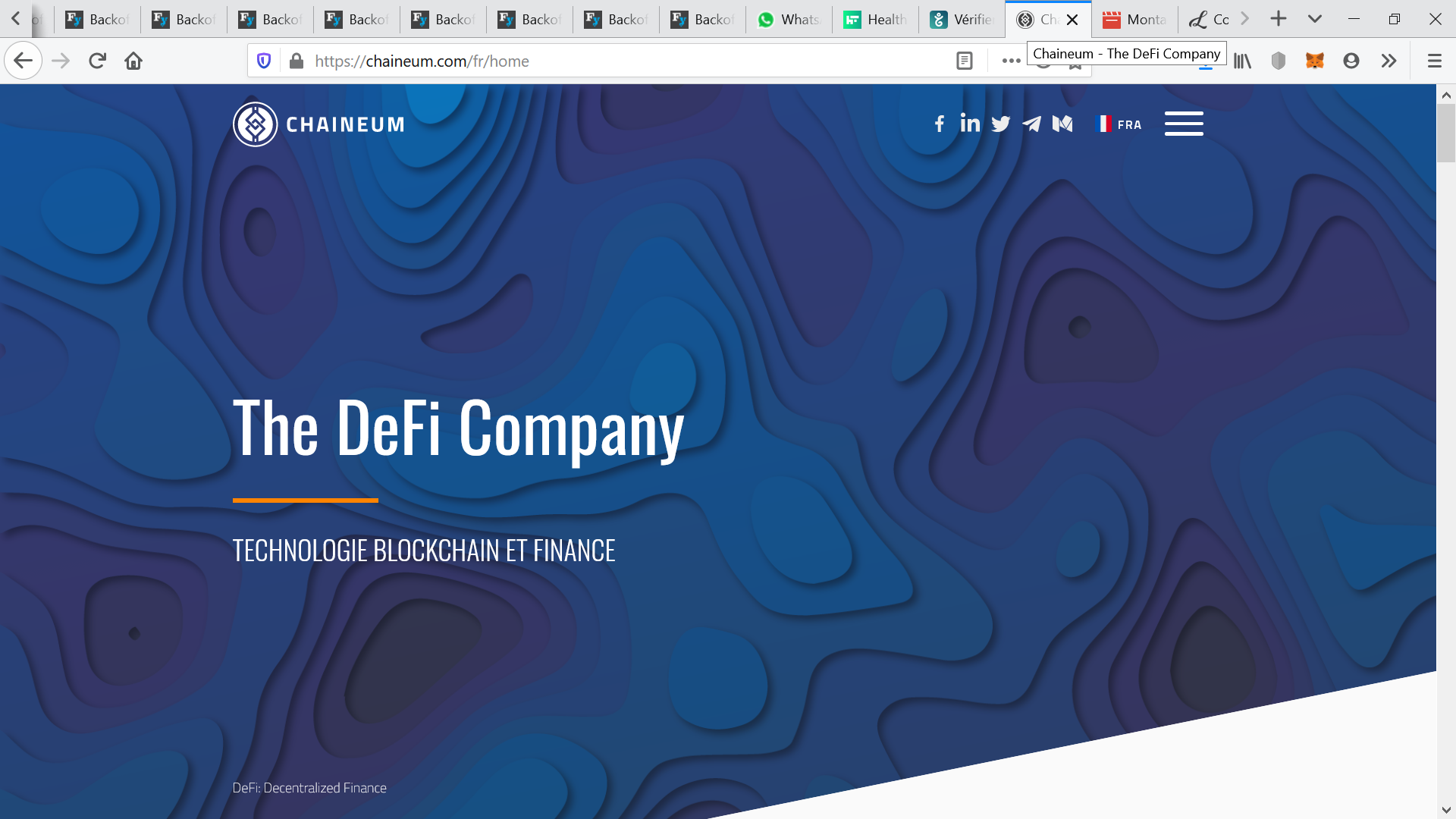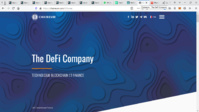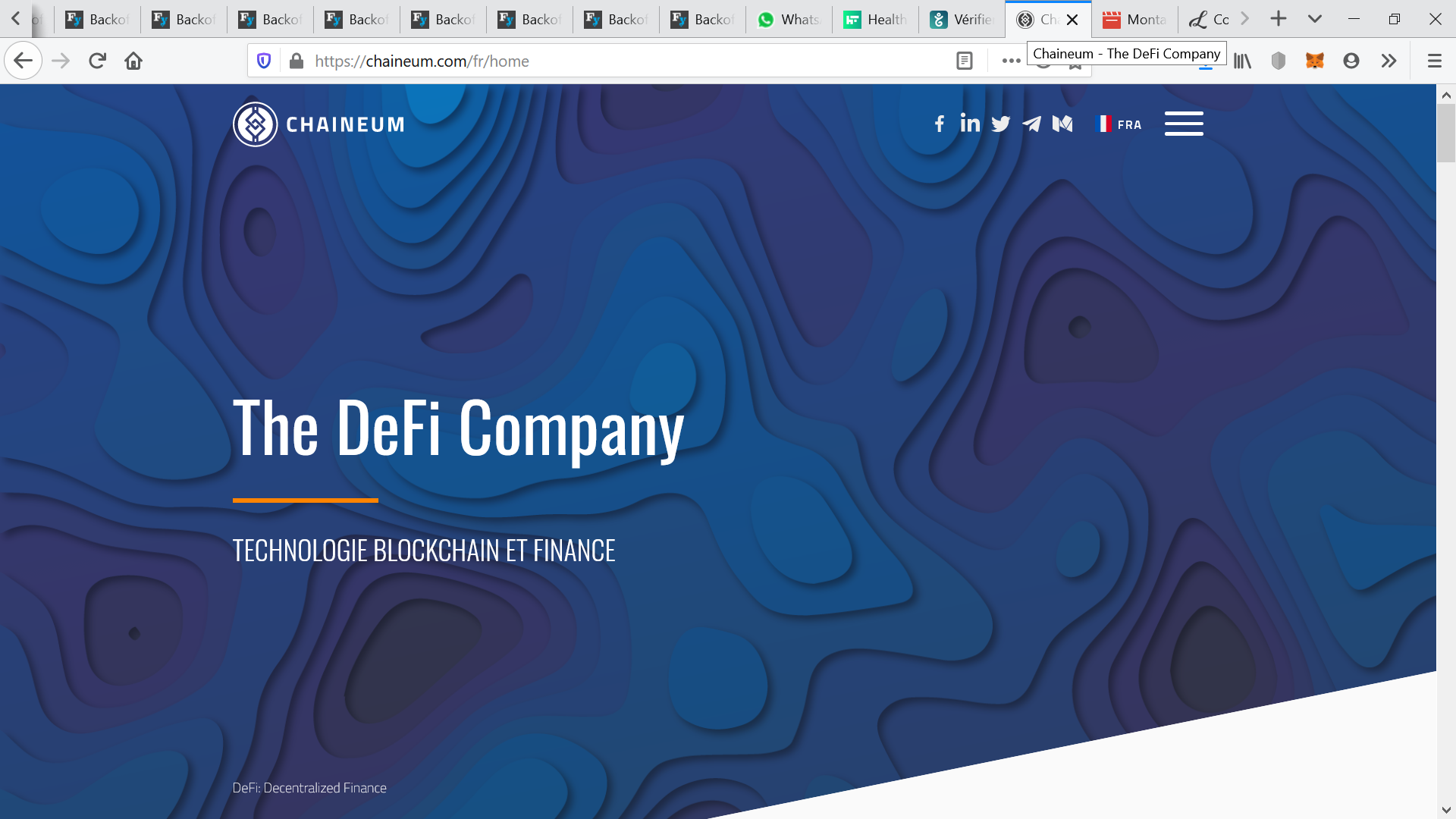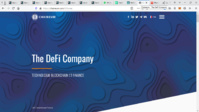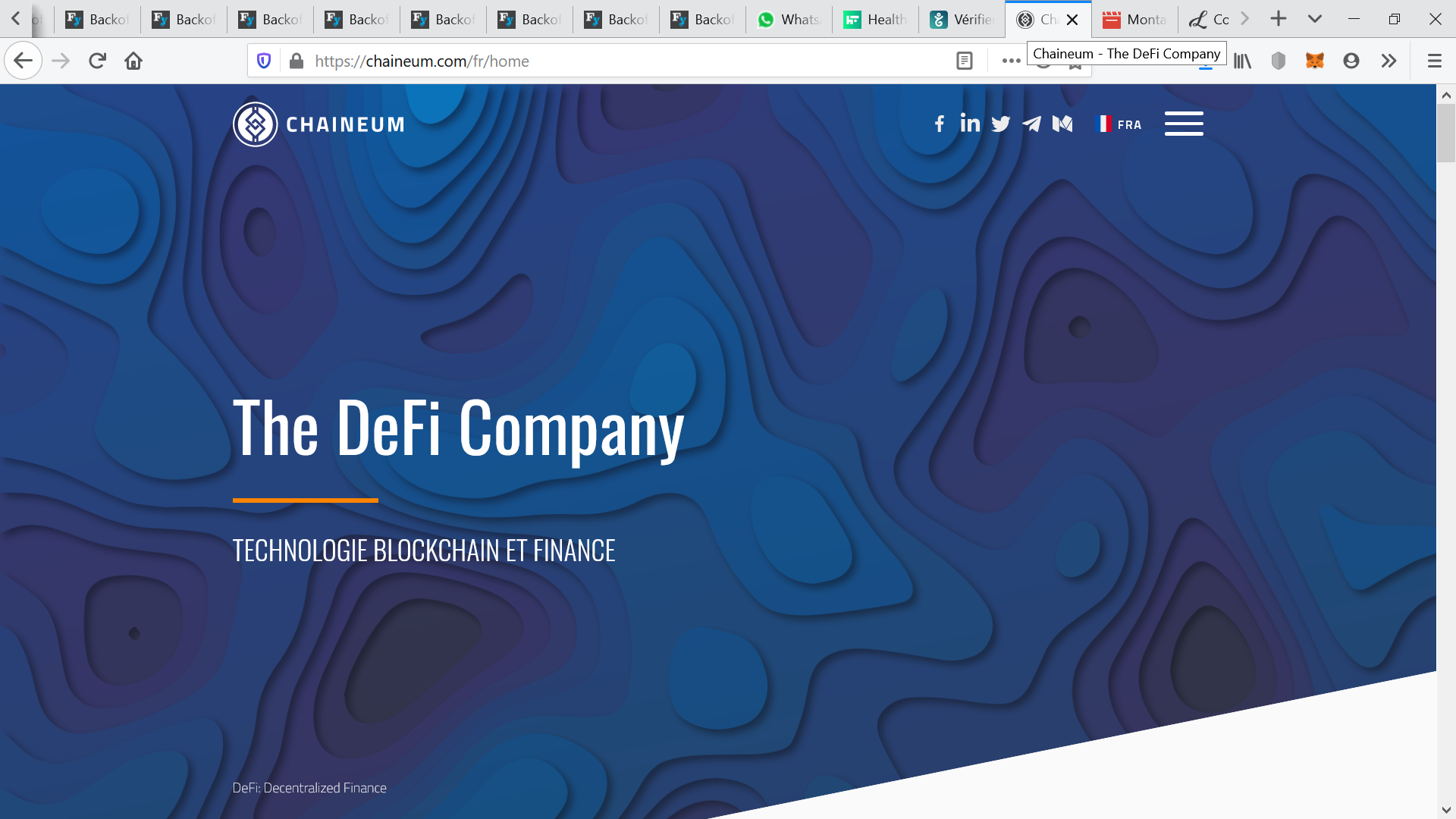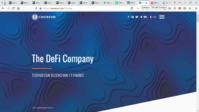• Front running resistant protocol: Simultaneously solves all DeFi transactions for a particular currency or liquidity pool in a single block, meaning that neither miners nor fee inflators gain by putting one transaction in front of or behind another, since there is no “front”.
• Currency Launches with Fractional Reserve Option: Anyone with a VerusID can launch a currency on the Verus test network as a stand-alone currency or with a fractional reserve. The fractional reserve can be a basket with multiple tokens providing built-in liquidity pools and access to finance.
• Revocable, Recoverable & Theft Resistant IDs: For the first time ever, using VerusID (technology currently on mainnet), users can recover funds in any currency on the network, should private keys be lost or stolen. Funds can be inherited if a wallet owner passes away. This is all possible while remaining 100% self-sovereign and decentralized.
• No Fluctuating Gas Fees: Conversions are as quick as sending a currency and fees remain flat at 0.025% between fractional basket currencies and their reserves in either direction and 0.05% for reserve conversions, which are preferred for arbitrage or currency agnostic, conversion bargain-hunting.
• Interoperable Blockchain Bridges: The Verus network enables bridging with other blockchains that implement a specific protocol interface. This cross-blockchain protocol works automatically between independent and merge-mineable PBaaS blockchains on the Verus network, and there is an ETH contract-based implementation of the protocol in progress.
Pioneering, community-driven blockchain, The Verus Project, announces the official launch of its public, multi-currency testnet with integrated DeFi and liquidity protocols. Development of these new blockchain capabilities is led by Verus developer Mike Toutonghi, a software veteran who led Kernel development on Microsoft 95. Mike’s an ex-Vice President and Technical Fellow at Microsoft, one of the founders of Microsoft’s Java and .Net platforms, and has served as CTO for Parallels, Inc. as well as machine learning consultant for companies like Synacor and others. Mike Toutonghi as well as numerous other developers and contributors across the community, each with just as interesting backgrounds, are committed to building the world’s future blockchain infrastructure, applying cutting-edge decentralized technology to make fundamental financial systems, people powered and available to all.
Once the testnet has completed this phase as validation, these features will be available on the main Verus network and in Verus Desktop and via a mobile experience that will enable Fiat on and off ramps in 145 countries around the world. Verus Desktop and Verus Mobile also support many popular currencies, including Bitcoin, Zcash, ETH and ERC20 tokens already. The Verus backend business software, such as pools, explorers, self-sovereign payment systems, are also community developed and maintained and available as open source for customization or productization and as tools for building more specialized applications or businesses.
Mike Toutonghi, the Lead Developer, had this to say: “Similar to the early days of PCs or emergence of the Internet, today’s blockchain networks are like single-tasking PCs with so much more potential. I see multi-currency protocols as a requirement to enable a decentralized financial network of blockchains and subnetworks that interoperate seamlessly together. Today’s DeFi systems are too often being built at an application level, while native blockchain currencies, like ETH, BTC, or most every other depends on its currency protocol, including emission and inflation, at the system layer. Much like multitasking and TCP/IP, I believe tomorrow’s decentralized financial networks need multi-currency protocols at the core in a way that can affect consensus. That is required for natural blockchain security and seamless interoperability across networks. That vision guides the evolution of the Verus platform.”
The upcoming release, which available now on testnet, will enable definition of currencies that can be launched on-chain with Kickstarter-like minimum participation or created as fractional reserve currencies (backed by Verus or a multi-currency basket) with continuous algorithmic conversion and liquidity.
Starting with Ethereum as its first multi-currency bridge to other networks, the Verus cross-chain multi-currency and identity protocols enable interoperability across the world’s blockchain networks, allowing for a decentralized Internet of blockchains, currencies, and tokens and the next evolution in decentralized world finance. The new tools and capabilities on today’s Verus testnet will encourage people to move from a single currency or chain mentality to one of cryptocurrency fungibility and blockchain project collaboration, which in the Verus Vision, is what enables society to benefit from the potential of Public Blockchains as a Service (PBaaS).
About Verus:
Verus is the next generation DeFi enabled platform, which was designed as a scalable, secure, public network with privacy built in. Verus was fairly launched with no ICO, no pre-mine, with advance mining notice on the BitcoinTalk forum, and no development fee or other rent-seeking taxes. Verus offers recoverable friendly name identities, and unique smart transactions to ease development of applications and services. In addition to these capabilities, which are available today using the Verus Desktop GUI application for Windows, Mac, and Linux platforms, Verus is testing its upcoming release that supports unlimited tokenization of assets. Which is a truly free, decentralized protocol that is a rent-free blockchain framework that provides chain interoperability and can scale to the world. Once on mainnet, the Verus DeFi system will be a fractal, market-driven, and completely liquid worldwide network of independently valued currencies and protocol-based currency baskets. The Verus community continues to grow organically and 100% of rewards from the network is returned to miners and stakers. The project is supported by contributors around the world and an independent non-profit foundation that offers bounties and aids in the decentralized building of technology by the community.
• Currency Launches with Fractional Reserve Option: Anyone with a VerusID can launch a currency on the Verus test network as a stand-alone currency or with a fractional reserve. The fractional reserve can be a basket with multiple tokens providing built-in liquidity pools and access to finance.
• Revocable, Recoverable & Theft Resistant IDs: For the first time ever, using VerusID (technology currently on mainnet), users can recover funds in any currency on the network, should private keys be lost or stolen. Funds can be inherited if a wallet owner passes away. This is all possible while remaining 100% self-sovereign and decentralized.
• No Fluctuating Gas Fees: Conversions are as quick as sending a currency and fees remain flat at 0.025% between fractional basket currencies and their reserves in either direction and 0.05% for reserve conversions, which are preferred for arbitrage or currency agnostic, conversion bargain-hunting.
• Interoperable Blockchain Bridges: The Verus network enables bridging with other blockchains that implement a specific protocol interface. This cross-blockchain protocol works automatically between independent and merge-mineable PBaaS blockchains on the Verus network, and there is an ETH contract-based implementation of the protocol in progress.
Pioneering, community-driven blockchain, The Verus Project, announces the official launch of its public, multi-currency testnet with integrated DeFi and liquidity protocols. Development of these new blockchain capabilities is led by Verus developer Mike Toutonghi, a software veteran who led Kernel development on Microsoft 95. Mike’s an ex-Vice President and Technical Fellow at Microsoft, one of the founders of Microsoft’s Java and .Net platforms, and has served as CTO for Parallels, Inc. as well as machine learning consultant for companies like Synacor and others. Mike Toutonghi as well as numerous other developers and contributors across the community, each with just as interesting backgrounds, are committed to building the world’s future blockchain infrastructure, applying cutting-edge decentralized technology to make fundamental financial systems, people powered and available to all.
Once the testnet has completed this phase as validation, these features will be available on the main Verus network and in Verus Desktop and via a mobile experience that will enable Fiat on and off ramps in 145 countries around the world. Verus Desktop and Verus Mobile also support many popular currencies, including Bitcoin, Zcash, ETH and ERC20 tokens already. The Verus backend business software, such as pools, explorers, self-sovereign payment systems, are also community developed and maintained and available as open source for customization or productization and as tools for building more specialized applications or businesses.
Mike Toutonghi, the Lead Developer, had this to say: “Similar to the early days of PCs or emergence of the Internet, today’s blockchain networks are like single-tasking PCs with so much more potential. I see multi-currency protocols as a requirement to enable a decentralized financial network of blockchains and subnetworks that interoperate seamlessly together. Today’s DeFi systems are too often being built at an application level, while native blockchain currencies, like ETH, BTC, or most every other depends on its currency protocol, including emission and inflation, at the system layer. Much like multitasking and TCP/IP, I believe tomorrow’s decentralized financial networks need multi-currency protocols at the core in a way that can affect consensus. That is required for natural blockchain security and seamless interoperability across networks. That vision guides the evolution of the Verus platform.”
The upcoming release, which available now on testnet, will enable definition of currencies that can be launched on-chain with Kickstarter-like minimum participation or created as fractional reserve currencies (backed by Verus or a multi-currency basket) with continuous algorithmic conversion and liquidity.
Starting with Ethereum as its first multi-currency bridge to other networks, the Verus cross-chain multi-currency and identity protocols enable interoperability across the world’s blockchain networks, allowing for a decentralized Internet of blockchains, currencies, and tokens and the next evolution in decentralized world finance. The new tools and capabilities on today’s Verus testnet will encourage people to move from a single currency or chain mentality to one of cryptocurrency fungibility and blockchain project collaboration, which in the Verus Vision, is what enables society to benefit from the potential of Public Blockchains as a Service (PBaaS).
About Verus:
Verus is the next generation DeFi enabled platform, which was designed as a scalable, secure, public network with privacy built in. Verus was fairly launched with no ICO, no pre-mine, with advance mining notice on the BitcoinTalk forum, and no development fee or other rent-seeking taxes. Verus offers recoverable friendly name identities, and unique smart transactions to ease development of applications and services. In addition to these capabilities, which are available today using the Verus Desktop GUI application for Windows, Mac, and Linux platforms, Verus is testing its upcoming release that supports unlimited tokenization of assets. Which is a truly free, decentralized protocol that is a rent-free blockchain framework that provides chain interoperability and can scale to the world. Once on mainnet, the Verus DeFi system will be a fractal, market-driven, and completely liquid worldwide network of independently valued currencies and protocol-based currency baskets. The Verus community continues to grow organically and 100% of rewards from the network is returned to miners and stakers. The project is supported by contributors around the world and an independent non-profit foundation that offers bounties and aids in the decentralized building of technology by the community.
No Offer, Solicitation, Investment Advice, or Recommendations
This website is for informational purposes only and does not constitute an offer to sell, a solicitation to buy, or a recommendation for any security, nor does it constitute an offer to provide investment advisory or other services by FINYEAR.
No reference to any specific security constitutes a recommendation to buy, sell or hold that security or any other security.
Nothing on this website shall be considered a solicitation or offer to buy or sell any security, future, option or other financial instrument or to offer or provide any investment advice or service to any person in any jurisdiction.
Nothing contained on the website constitutes investment advice or offers any opinion with respect to the suitability of any security, and the views expressed on this website should not be taken as advice to buy, sell or hold any security. In preparing the information contained in this website, we have not taken into account the investment needs, objectives and financial circumstances of any particular investor.
This information has no regard to the specific investment objectives, financial situation and particular needs of any specific recipient of this information and investments discussed may not be suitable for all investors.
Any views expressed on this website by us were prepared based upon the information available to us at the time such views were written. Changed or additional information could cause such views to change.
All information is subject to possible correction. Information may quickly become unreliable for various reasons, including changes in market conditions or economic circumstances.
No reference to any specific security constitutes a recommendation to buy, sell or hold that security or any other security.
Nothing on this website shall be considered a solicitation or offer to buy or sell any security, future, option or other financial instrument or to offer or provide any investment advice or service to any person in any jurisdiction.
Nothing contained on the website constitutes investment advice or offers any opinion with respect to the suitability of any security, and the views expressed on this website should not be taken as advice to buy, sell or hold any security. In preparing the information contained in this website, we have not taken into account the investment needs, objectives and financial circumstances of any particular investor.
This information has no regard to the specific investment objectives, financial situation and particular needs of any specific recipient of this information and investments discussed may not be suitable for all investors.
Any views expressed on this website by us were prepared based upon the information available to us at the time such views were written. Changed or additional information could cause such views to change.
All information is subject to possible correction. Information may quickly become unreliable for various reasons, including changes in market conditions or economic circumstances.
Finyear : Future Finance, Fintech, DeFi | Daily News
Chaineum : The DeFi Company
HealthTech.Finance : Healthtech Investment Bank
Laurent Leloup : Blockchain & DeFi Advisor
Chaineum : The DeFi Company
HealthTech.Finance : Healthtech Investment Bank
Laurent Leloup : Blockchain & DeFi Advisor
Autres articles
-
Un partenariat structurant : Figen AI déploie ses solutions d’IA générative au sein de Wealthcome Pro, la plateforme d’agrégation et de gestion patrimoniale
-
Nomination | Phenomen accueille Francis Barel en tant que Directeur Général
-
Sekoia.io lève 26 millions d’Euros en série B pour démocratiser la détection des menaces avec l’IA et le renseignement cyber
-
Paris Blockchain Week | Jour 1, le best of des interventions du jour
-
LetzOlky : une plateforme innovante pour la tokenisation des actifs financiers sur blockchain





